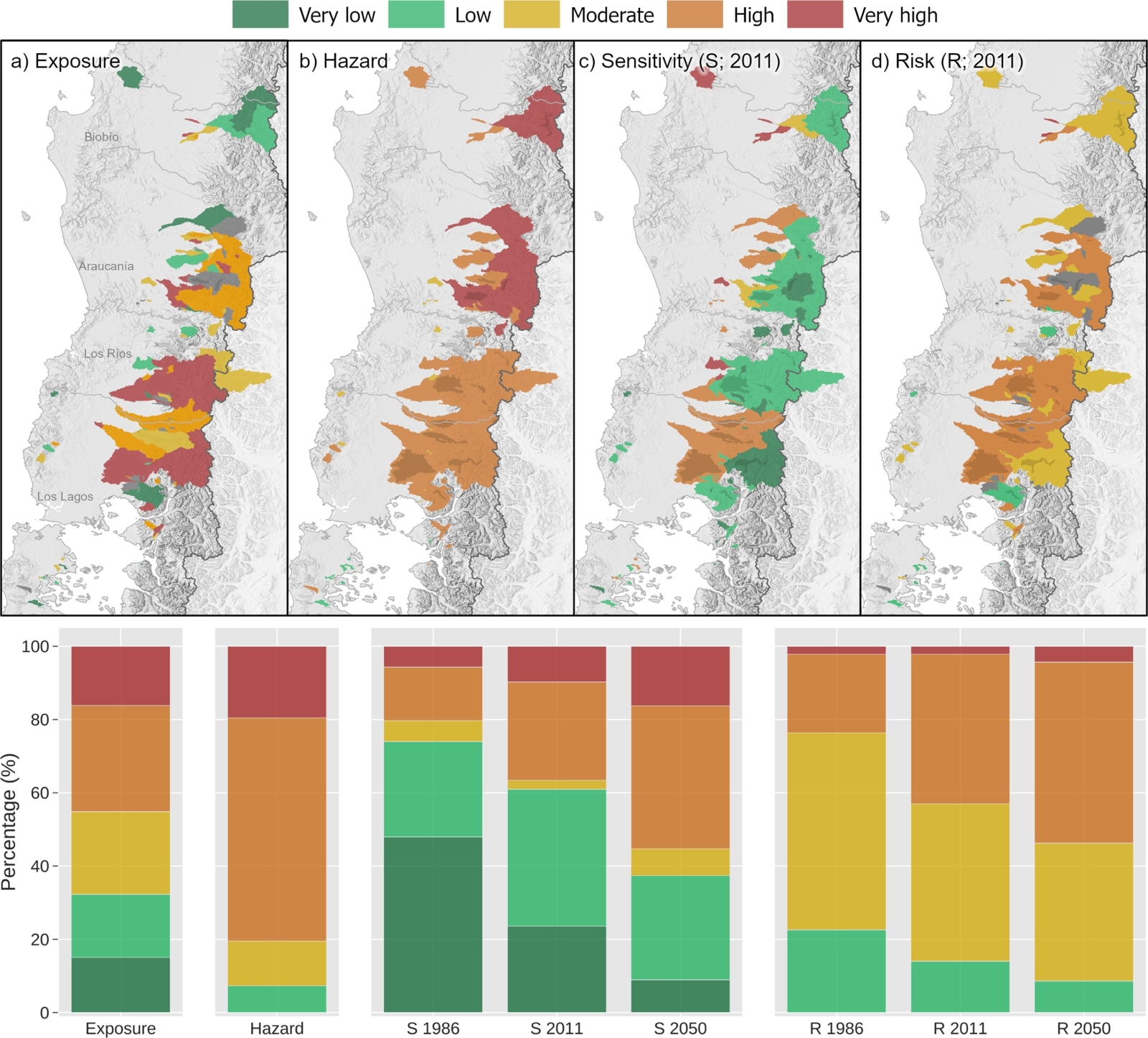April 5, 2023 | Climate Risk Management |
A study conducted by Universidad Católica de la Santísima Concepción and other institutes in Chile focuses on the impact of climate change on salmon farming in south-central Chile. The success of salmon cultivation heavily relies on access to high-quality water, which is supplied by watersheds dominated by native forests and characterized by high precipitation levels. However, human activities and climate change pose risks to these attributes.
The researchers analyzed 123 watersheds that provide water to land-based salmon farms in the region. They assessed the risk of climate change based on exposure (fingerling and smolt production), sensitivity (land cover maps), and hazard indicators (climate change indicators). The results reveal a concerning reality: under a high emissions scenario, over 50% of current fingerling and smolt production would be located in high or very high-risk areas.
The projections are influenced by a drier and warmer climate, as well as the ongoing deforestation and fragmentation of native forests. This combination reduces water availability and quality, negatively impacting aquaculture production. The study suggests that landscape configuration could be a potential mitigation strategy to address the consequences of climate change on salmon farming. Particularly in south-central Chile, where existing watershed management and conservation strategies are insufficient to ensure resilience to projected hydroclimatic changes.

Exposure (a), hazard (b), sensitivity (c; 2011) and risk (d; 2011) for the land-based farms of south-central Chile. The grey area represents the watersheds without productive data in 2020–2021. The bars indicate the relative percentage of each class for different time periods.




